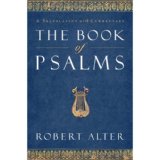Mark 6:14-29 and the book of Esther
I thought the reference in Mark 6:23 to "up to half my kingdom" sounded familiar. Sure enough, the phrase also occurs in Esther 5:3 and Esther 7:2.
That got me thinking.
In the book of Esther we have a king with an extravagant party who makes an oath to depose his queen, which would be (for her) a kind of death. He promises a girl up to half of his kingdom, and then executes somebody because it is effectively what that girl asked for. We have someone (Haman), who has the king's ear, asking for the people of God to be put to death. Sound familiar?

Recent comments